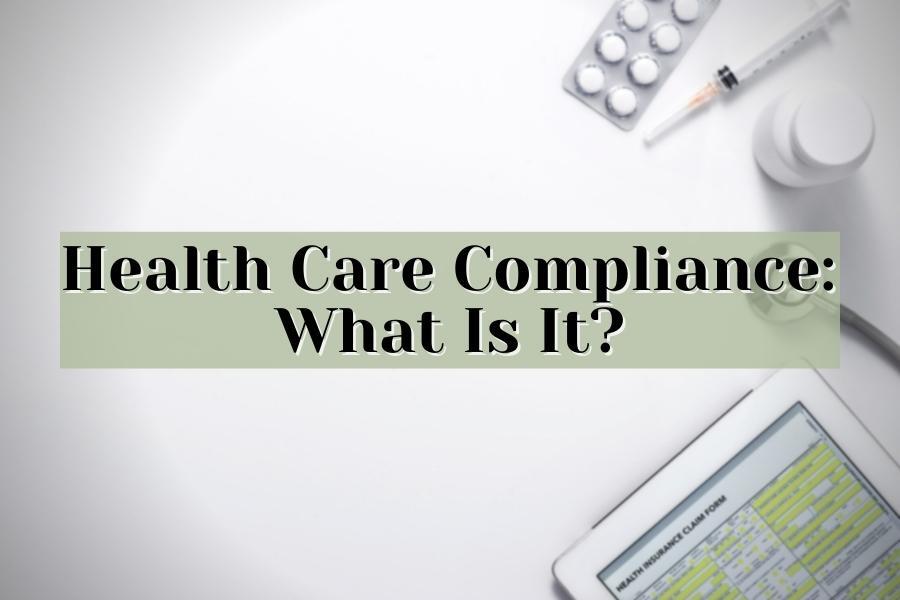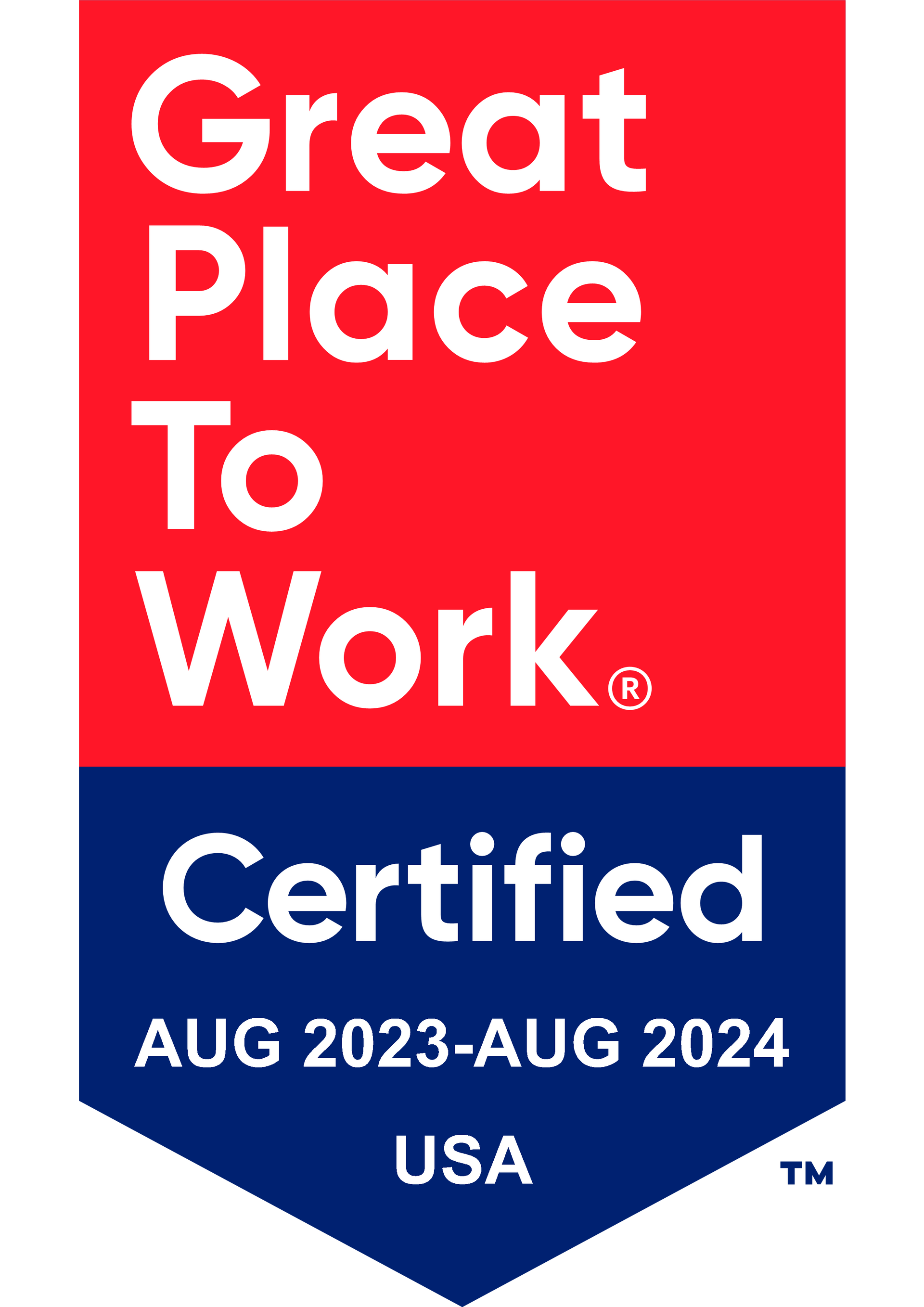Get in touch
408-366-8880
mymail@mailservice.com

Health Care Compliance: What Is It?
When your company decides to offer health care coverage to employees, you’re banking on the overall benefit to employee morale, retention rates, and health. While health benefits are indeed an excellent way to retain top employees and invest in their long-term health, implementing a health plan automatically requires you to follow a slew of compliance regulations.
These compliance regulations are designed to protect the interests of your plan participants and ensure you're following federal and state mandates for health plan operation.
Each year, the most seasoned HR and finance pros grapple with the ever-changing, complex world of health care compliance. Essentially, remaining compliant with your employee health benefits plan means following the regulations, maintaining documentation that you followed the regulations, and filing annual reports with the government to confirm your compliance.
WHAT IS HEALTH CARE COMPLIANCE?
Health care compliance refers to how your company meets its legal obligations and regulations related to the health plan you offer to employees. These requirements are constantly shifting, which means you’ll need to stay on top of the changes. And contrary to popular belief, the burden falls on organizations to maintain compliance – not the insurance companies.
Maintaining health care compliance is a year-round effort that involves distributing certain notices and documenting that employees have received and acknowledged the notices. You’ll also need to keep records to confirm you’re in compliance in case your company is ever subjected to an audit.
Specifically, you’ll need to comply with rules and regulations set by the following:
- Federal government. The federal laws you’ll need to follow include the Employee Retirement Income Security Act (ERISA), the Patient Protection and Affordable Care Act (ACA), the Consolidated Omnibus Budget Reconciliation Act (COBRA), the Family and Medical Leave Act (FMLA), and the Health Insurance Portability and Accountability Act (HIPAA).
- State government. Depending on where your company is located, you may also have some state laws that apply. These regulations tend not to be as wide-ranging as federal requirements.
- Carrier contracts. The carrier you’ve chosen may also impose its own requirements, including a minimum participation requirement and the amount your company must contribute to the health plan.
When you first delve into health care compliance, it can be overwhelming to see the number and scope of requirements. Each law comes with its own required notices, disclosures, and reporting standards.
These are the main areas you’ll need to be aware of:
ERISA
ERISA, which regulates employee benefits, sets the most stringent standards of all the health plan laws. Its compliance requirements can be overwhelming even for the most veteran HR and finance pros. Under ERISA, you’re required to distribute certain information and disclosures to plan participants, such as a Summary Plan Description that fully explains the health plan in easily understandable terms. You’re also required to keep a plan document on file detailing its administration and operation, which must be available to plan participants who request it.
Whenever you make a change to the plan, you must communicate those changes to employees with a Summary of Material Modifications document that explains the updates.
Other notices required by ERISA include:
- Summary Annual Report
- Notice of Creditable/Non-Creditable Prescription Drug Coverage
- Children’s Health Insurance Program (CHIP) Notice
- Notice of Patient Protections
- Newborns’ and Mothers’ Health Protection Act Notice
- Women's Health and Cancer Rights Act Notice
ACA
ACA compliance imposes its own set of complex provisions. For example, the ACA stipulates that your waiting period for offering a health plan to new employees must not exceed 90 calendar days.
Under the ACA, you may face penalties if you have 50 or more full-time employees (making you an Applicable Large Employer, or ALE) and do not provide health insurance. If you do provide health insurance, it must meet certain standards for level of coverage and affordability. As an ALE, you're required to offer minimum essential coverage to at least 95% of the full-time workforce (and dependents) and ensure that the coverage is affordable based on an IRS-approved calculation method.
Each time you welcome a new hire, you must inform them about their coverage options available to them – including the plan available through the company as well as through the Health Insurance Marketplace. In addition, each year at open enrollment, you must also distribute a Summary of Benefits and Coverage that gives a comprehensive summary of the various health care plans available.
If employees choose to purchase their own health insurance, legally under the ACA, you are not permitted to reimburse them for their individual health plan costs.
COBRA
When an employee loses access to the health plan or leaves the company, you must let them know about their rights to buy continuation coverage through COBRA.
FMLA
If your organization is covered under FMLA, you are legally required to inform them about their eligibility for FMLA leave and any rights and responsibilities they have.
HIPAA
When an employee chooses to enroll in a health plan, you’re required to inform them about the health plan’s privacy practices and your obligation to keep their health information confidential.
COMPLIANCE REPORTING
Tracking and following regulations is half the battle of health care compliance. To ensure compliance with compliance mandates, you’re also required to report on the health plan to the government each year. If you do not file these reports timely, you may face steep penalties. Consider the following fines:
- The IRS penalty for late filing of an ERISA-mandated Form 5500 return is $250 a day (up to $150,000).
- The DOL penalty for late filing of a Form 5500 can run up to $2,529 per day, with no maximum.
- The penalties for late ACA filings can range from $50 to $530 per missed ACA form, depending on how late you submit the forms.
Avoiding these penalties is often the biggest motivating factor for employers seeking help with their compliance policies.
ERISA FILINGS
If you manage a fully-funded health plan that covers 100 or more employees at the beginning of the year, you must file Form 5500 annually with the U.S. Department of Labor (DOL) and the Internal Revenue Service (IRS). If your organization administers a self-funded plan, you must also file a Form 5500 if you meet the 100-employee coverage minimum. Your reporting on Form 5500 helps the DOL and IRS determine if your plan is operating within government compliance mandates.
If you have less than 100 employees at the start of the calendar year, you’re eligible to file Form 5500-SF. Form 5500-EZ is designed for one-participant plans only.
Form 5500 requests information such as the name, its date of effectiveness, plan sponsor information, the number of active plan participants, how benefits are provided, and any plan-specific characteristics.
Form 5500 is due on the last day of the seventh month after the plan year ends, typically July 31, for a plan that lasted the entire previous calendar year.
ACA FILINGS
As an employer with 50 or more full-time employees and/or full-time equivalents, you must annually report to the IRS on the coverage you extend to full-time staff and their dependents. You’ll need to report the following on the required IRS Form 1095-C:
- Employer contact and Employer Identification Number
- Year for which information is reported, including a certification that employees were given the opportunity to enroll in minimum essential coverage
- Months for which minimum essential coverage was available for each full-time employee
- Each full-time employee's share of the cost of coverage under the lowest-cost, minimum-value plan offered by the employer by calendar month
- Number of full-time employees for each month during the calendar year
- Name, address, and Social Security number for each full-time employee and the months of coverage
The ACA also requires you to report the cost of coverage under your sponsored health plan on the employees’ Form W-2.
If you have a self-insured plan, you must report on the minimum essential coverage you provide for covered employees. Each time you file the IRS Form 1095, you agree that the coverage you offered satisfied the individual mandate requirements for all months during the previous tax year.
The ACA reports are due annually by March 31 if filing electronically or by February 28 if filing by mail.
HOW KBI’S COMPLIANCE ASSESSMENT CAN HELP
Maintaining health care compliance can be a monumental task, even if you’ve been offering health plan benefits to your employees for years. However, it’s important to stay vigilant of the ever-changing regulations to avoid penalties and keep your health plan running smoothly.
If you’re unsure of your company’s compliance needs and whether you’re taking all the actions you need to stay compliant with government mandates, take our Compliance Assessment. Based on your answers, we’ll generate a risk assessment score and identify the actions you need to take to get in compliance. Even companies with solid compliance policies can benefit from a check-up to ensure they’re completely up to speed on the latest changes.
Our Compliance Assessment is the first step you can take toward successful compliance. Our team of expert benefits consultants specializes in all aspects of health care compliance, and we can keep you stay up to date on the latest compliance changes. Together, we’ll come up with a plan to ensure you’re meeting all the pertinent health care compliance rules.
Let us help you navigate the often challenging and confusing compliance landscape. To find out more about how we can help your company, contact us today using our online contact form or calling us at 408-366-8880.
Sources:
- https://blog.checkmark.com/aca-deadlines-penalties-extension-for-2020/
- https://www.irs.gov/newsroom/reporting-employer-provided-health-coverage-on-form-w-2
- https://cdn2.hubspot.net/hubfs/1860314/Employee%20Benefits%20Compliance%20Checklist%20for%20Large%20Employers.pdf?t=1511381389777
- https://www.shrm.org/resourcesandtools/tools-and-samples/hr-qa/pages/what-are-the-erisa-compliance-requirements-for-group-health-plans.aspx
- https://smallbusiness.chron.com/importance-compliance-business-71173.html
- https://www.acatimes.com/five-resources-essential-for-aca-compliance-in-2021/amp/
- https://www.cigna.com/employers-brokers/insights/informed-on-reform/reporting-requirements
- https://www.dol.gov/sites/dolgov/files/EBSA/about-ebsa/our-activities/resource-center/publications/reporting-and-disclosure-guide-for-employee-benefit-plans.pdf
- https://www.shrm.org/resourcesandtools/tools-and-samples/hr-qa/pages/whatisform5500andwhereareinstructionforcompletingit.aspx
- https://www.benefitspro.com/2012/04/02/form-5500-frequently-asked-questions/
Services
Latest Thinking




